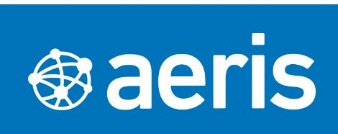 New Delhi, Jan, 10, 2017: Aeris, a pioneer and leader in the Internet of Things (IoT) market, today said it has formed a partnership with MapmyIndia, India’s leader in premium-quality digital maps, global positioning system (GPS) navigation, tracking, location-based apps and geographic information system (GIS) solutions, to jointly address the market by offering geo-spatial intelligence based IoT solutions in India.
New Delhi, Jan, 10, 2017: Aeris, a pioneer and leader in the Internet of Things (IoT) market, today said it has formed a partnership with MapmyIndia, India’s leader in premium-quality digital maps, global positioning system (GPS) navigation, tracking, location-based apps and geographic information system (GIS) solutions, to jointly address the market by offering geo-spatial intelligence based IoT solutions in India.
With this breakthrough alliance, both companies said they have decided to pursue opportunities jointly by developing solutions and offering services leveraging their respective areas of core competence.
The landmark agreement will redefine the contours of the overall IoT solutions market while addressing business challenges such as ubiquitous tracking through connectivity leading to truly IoT-led businesses change. The global IoT market is expected to cross $200 billion by 2020. The IoT market in India stood at USD $5.6 billion with 200 million connected devices in 2016. This is expected to grow to USD $15 billion with 2.7 billion devices by 2020 presenting a significant opportunity for technology and service providers.
Grounded on the mutual strengths of both the companies, the combination will create solutions that will transform specific aspects of how businesses and employees work using IoT, allowing companies to achieve newer levels of efficiency, effectiveness and customer satisfaction.
“The world is moving from automatic to autonomous operations. The era of IoT is here and MapmyIndia, as always, is taking the lead. The partnership with Aeris, a pioneer in the IoT space, will go a long way in making the Indian businesses globally competitive. I am confident that the combination of MapmyIndia’s best-in-class mapping & GIS solutions and the pioneering IoT prowess and global experience of Aeris will be a big boon for not just the Indian businesses and enterprises but will benefit the whole country. This will act as a catalyst towards realizing the Prime Minister’s vision of Digital India,” said Rakesh Verma, managing director, MapmyIndia.
This agreement marks a major milestone for both companies. “We are witnessing the evolution of the IoT ecosystem globally with businesses recognizing the need to invest in technologies and solutions based on IoT. Our tie-up with MapmyIndia is primed towards helping businesses leverage the potential of IoT to realize business benefits that are multi-dimensional, innovation driven and transformative. I am confident that this will change the way verticals operate and companies perform,” said Dr. Rishi Bhatnagar, president, Aeris Communications.
About MapmyIndia
MapmyIndia’s mission is to make the world better through maps and location technologies. Founded in 1992, the company is India’s leader in premium quality digital map data and APIs, GPS navigation, tracking, location apps, and GIS solutions. MapmyIndia is an ISO 9001-2012 company with 750+ people that pioneered digital mapping in India. Using the state-of-the-art panoramic mapping technology that captures, analyses and publishes the world in 3D and 360-degree photo-realistic clarity, the company has built its proprietary, Industry grade MapmyIndia Maps. These are ‘Made in and for India’ maps and are fully compliant, in letter and spirit, with the Government of India’s mapping guidelines. It has fully monetized maps offerings through consumer apps, navigation devices, licensing, map APIs, tracking and analytics. Some of the leading companies like Flipkart, Ola Cabs, Toyota and Mahindra & Mahindra are using MapmyIndia maps.
About Aeris
Aeris is a pioneer and leader in the market of the Internet of Things – as an operator of end-to-end IoT and machine-to-machine (M2M) services and as a technology provider enabling other operators to build profitable IoT businesses. Among our customers are the most demanding users of IoT services today, including Hyundai, Acura, Rand McNally, Leica, and Sprint. Through our technology platform and dedicated IoT and M2M services, we strive to fundamentally improve their businesses – by dramatically reducing costs, improving operational efficiency, reducing time-to-market, and enabling new revenue streams.
